ニッコロ・マキャヴェッリ(1469年5月3日 – 1527年6月21日)
Niccolò Machiavelli (May 3, 1469 – June 21, 1527)
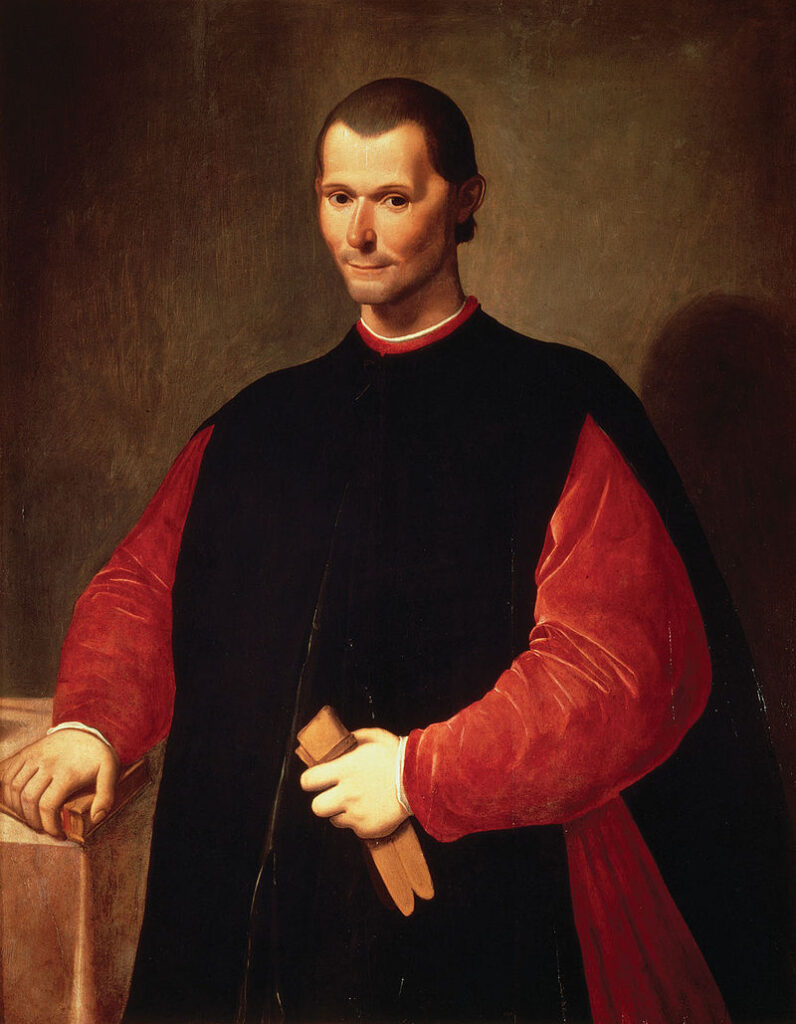
Niccolò Machiavelli
生い立ち・生涯
ニッコロ・マキャヴェッリ(1469年5月3日 – 1527年6月21日)
幼少期から官僚への道
ニッコロ・マキャヴェッリは1469年5月3日にフィレンツェで生まれました。
彼は裕福な家庭に生まれ、幼少期から優れた教育を受けました。
彼の教育はラテン語や古典文学に焦点を当て、これが後の彼の著作に大きな影響を与えることになります。
マキャヴェッリは若い頃からフィレンツェ共和国の官僚として働き始め、政治の舞台に身を置きました。
彼はフィレンツェの公共文書館で働き、外交官や政治顧問として活躍しました。
彼の経験は後に彼の政治的見解や著作に反映されることとなります。
政治家としての活動
マキャヴェッリは政治家として、フィレンツェ共和国の外交政策や軍事戦略に関与しました。
彼は共和国の利益を最優先し、安定と繁栄を追求するために努力しました。
しかし、彼の政治的手法は時に批判を受け、特にメディチ家との複雑な関係によって彼の地位が揺らぐこととなります。
著作と「君主論」
マキャヴェッリは政治活動の傍らで著述活動も行い、その中でも最も有名な著作は「君主論」です。
この著作は君主の政治手法や支配方法について論じたもので、彼のリアリズムと政治的冷静さが反映されています。
マキャヴェッリは人間の本性や政治の現実を冷酷なまでに認識し、君主は時には道徳的でない手段を用いる必要があると主張しました。
メディチ家との関係
マキャヴェッリの政治活動は、特にメディチ家との複雑な関係によって影響を受けました。
彼はしばしばメディチ家との交渉に従事し、その関係は彼の政治的キャリアに大きな影響を与えました。
メディチ家の支援を受ける一方で、彼は彼らの政治的野心や腐敗に対する批判も行いました。
晩年と没後の評価
マキャヴェッリは政治家としてのキャリアの後、晩年は著述活動に専念しました。
彼は政治における現実主義や実利主義を強調し、その影響は近代政治学や国際関係論にまで及びました。
1527年6月21日にフィレンツェで死去しましたが、彼の思想は現代でも広く議論され、彼の名声は不滅のものとなっています。
Early Life and Career
Niccolò Machiavelli (May 3, 1469 – June 21, 1527)
From Childhood to Bureaucracy
Niccolò Machiavelli was born on May 3, 1469, in Florence. Raised in a wealthy family, he received an excellent education focused on Latin and classical literature, which would profoundly influence his later writings. Machiavelli began his career as a bureaucrat in the Florentine Republic, quickly becoming involved in the political sphere. He worked at the Florentine Chancellery, serving as a diplomat and political advisor, experiences that greatly shaped his political views and writings.
Political Career
As a politician, Machiavelli played a significant role in shaping Florence’s foreign policy and military strategy. He prioritized the republic’s stability and prosperity, though his methods often drew criticism. His complex relationship with the powerful Medici family frequently threatened his political standing.
Writings and “The Prince”
Alongside his political activities, Machiavelli was a prolific writer. His most famous work, “The Prince,” discusses the strategies and methods a ruler should employ to maintain power. Known for its realism and political pragmatism, “The Prince” reflects Machiavelli’s belief that rulers might need to resort to morally questionable tactics to achieve their goals.
Relationship with the Medici Family
Machiavelli’s career was significantly impacted by his dealings with the Medici family. He often negotiated with them and their influence was both a support and a challenge to his political endeavors. While he benefited from their patronage, he also criticized their ambitions and corruption.
Later Life and Legacy
After his political career waned, Machiavelli dedicated himself to writing. His emphasis on political realism and pragmatism has left a lasting mark on modern political science and international relations. He passed away on June 21, 1527, in Florence, but his ideas continue to be widely discussed, cementing his enduring legacy.
哲学・思想
ニッコロ・マキャヴェッリの哲学と思想
政治のリアリズムと実利主義
ニッコロ・マキャヴェッリ(1469年5月3日 – 1527年6月21日)は、ルネサンス期イタリアの政治家・思想家であり、彼の思想は政治のリアリズムと実利主義に根ざしています。
彼は現実の政治状況を冷静に分析し、理想主義的なイデオロギーではなく、実際の権力の行使に焦点を当てました。
『君主論』と政治理論
マキャヴェッリの最も有名な著作は『君主論』であり、これは政治における権力の獲得と維持についての手引きとして広く読まれています。
彼はこの中で、君主は時には道徳的でない手段を用いるべきだと主張しました。
彼は現実主義に基づいて、「果断であること」や「必要に応じて悪を行うこと」が、君主にとって重要であると説きました。
公共の利益と共和主義
マキャヴェッリの思想は、個人の名誉や権力よりも、公共の利益や共和国の安定を重視しています。
彼は共和主義の理念に基づき、共和国の政治的安定と市民の幸福を追求することを重要視しました。
また、マキャヴェッリは軍事力や外交手腕を通じて国家の繁栄を確保する必要性を強調しました。
歴史と政治的リーダーシップ
マキャヴェッリは、歴史を研究することが政治的指導者にとって重要であると考えました。
彼は過去の出来事から教訓を得ることができると信じ、歴史的な成功や失敗の要因を分析しました。
また、彼は政治的リーダーシップの重要な要素として、決断力や行動力を挙げました。
民兵と市民参加の重要性
マキャヴェッリは、市民参加と民兵の訓練を通じて共和国の安全を確保することを提唱しました。
彼は市民が政治的および軍事的な責任を果たすことで、共和国の繁栄と安定を支えると信じていました。
そのため、市民の教育と訓練に重点を置きました。
影響と評価
マキャヴェッリの思想は、その現実主義と政治的冷静さによって、後世の政治思想に大きな影響を与えました。
彼の著作は16世紀のみならず、現代の政治学や国際関係論においても広く議論されています。
彼の思想は時に議論を巻き起こし、批判も受けましたが、その影響力は不可逆的であり、彼は政治思想史上の巨匠と見なされています。
Philosophy and Thought
The Philosophy and Thought of Niccolò Machiavelli
Political Realism and Pragmatism
Niccolò Machiavelli (May 3, 1469 – June 21, 1527) was a Renaissance-era Italian politician and thinker whose ideas are grounded in political realism and pragmatism. He analyzed political situations with a clear-eyed perspective, focusing on the practical exercise of power rather than idealistic ideologies.
“The Prince” and Political Theory
Machiavelli’s most famous work, “The Prince,” serves as a guide on acquiring and maintaining political power. In this book, he argued that rulers might need to use morally questionable methods. Based on realism, he emphasized decisiveness and the willingness to act immorally when necessary as crucial traits for a ruler.
Public Interest and Republicanism
Machiavelli prioritized public interest and the stability of the republic over personal honor or power. He valued republican ideals, emphasizing the importance of political stability and citizen well-being. He also stressed the necessity of using military strength and diplomatic skills to ensure the prosperity of the state.
History and Political Leadership
Machiavelli believed that studying history was vital for political leaders. He thought that learning from past events could provide valuable lessons, and he analyzed historical successes and failures. He highlighted decisiveness and the ability to take action as key components of effective political leadership.
Importance of Militia and Civic Participation
Machiavelli advocated for the security of the republic through civic participation and militia training. He believed that citizens fulfilling political and military responsibilities would support the republic’s prosperity and stability. Therefore, he emphasized the importance of educating and training citizens.
Influence and Legacy
Machiavelli’s ideas, characterized by their realism and political pragmatism, have profoundly influenced later political thought. His works have sparked extensive discussion not only in the 16th century but also in modern political science and international relations. Though his ideas have often been controversial and criticized, his impact is undeniable, cementing his status as a master in the history of political thought.
特徴
ニッコロ・マキャヴェッリの特徴
現実主義の追求
ニッコロ・マキャヴェッリ(1469年5月3日 – 1527年6月21日)の最も顕著な特徴の一つは、彼の現実主義的なアプローチです。
彼は理想主義的な観点よりも現実的な政治の現状を重視しました。
そのため、彼の著作には政治的な現実主義が強く反映されています。
政治的リーダーシップへの関心
マキャヴェッリは政治的リーダーシップについての関心が深く、その著作は主に政治的指導者に向けて書かれています。
彼の作品の中で、政治的リーダーシップの資質や行動の重要性について詳細に論じられています。
過激なリアリズム
マキャヴェッリはしばしば過激なリアリズムを展示しました。
彼の作品には、政治的な目的達成のためには時に道徳的な規範を無視する必要があるという主張が見られます。
彼は現実の政治状況を冷酷に分析し、その中で君主や政治家に厳しい判断力を求めました。
歴史的視点からの政治分析
マキャヴェッリは政治の理解を深めるために歴史を重視しました。
彼の著作には、古代および現代の政治の事例からの具体的な例示が豊富に含まれています。
彼は歴史的な出来事や人物の分析を通じて、政治的な教訓を引き出そうとしました。
共和主義と市民参加の提唱
マキャヴェッリは共和主義の理念を支持し、市民参加の重要性を強調しました。
彼は市民が政治的および軍事的な責任を果たすことで、共和国の安定と繁栄を支えると信じていました。
そのため、彼は市民の教育と訓練に重点を置きました。
影響と評価
マキャヴェッリの著作は、彼の生存中から後世にわたって政治思想に大きな影響を与えました。
彼のリアリズムと現実主義的なアプローチは、現代の政治学や国際関係論においても広く引用されています。
また、彼の著作はしばしば議論の的となり、彼の思想はその後の政治思想に深い影響を与えました。
Key Traits of Niccolò Machiavelli
Pursuit of Realism
One of the most notable aspects of Niccolò Machiavelli (May 3, 1469 – June 21, 1527) is his commitment to realism. Rather than focusing on idealistic views, he emphasized the practical realities of political life. This focus on political realism is prominently reflected in his writings.
Interest in Political Leadership
Machiavelli had a deep interest in political leadership, and his works are primarily directed towards political leaders. He extensively discussed the qualities and actions crucial for effective political leadership in his writings.
Extreme Realism
Machiavelli often demonstrated a stark realism. His works suggest that moral norms may need to be set aside to achieve political goals. He analyzed political situations with a cold, hard perspective, urging rulers and politicians to exercise rigorous judgment.
Historical Perspective in Political Analysis
Machiavelli valued history as a tool for understanding politics. His works are rich with examples from both ancient and contemporary politics. He aimed to draw political lessons from analyzing historical events and figures.
Advocacy of Republicanism and Civic Participation
Machiavelli supported the ideals of republicanism and emphasized the importance of civic participation. He believed that the stability and prosperity of a republic were sustained by its citizens fulfilling their political and military responsibilities. Therefore, he placed great importance on educating and training citizens.
Influence and Legacy
Machiavelli’s writings have significantly influenced political thought from his time through to the present. His realism and pragmatic approach are widely referenced in modern political science and international relations. Though often controversial, his ideas have deeply impacted subsequent political theory.
エピソード
ニッコロ・マキャヴェッリの逸話
謀略の天才としての評価
ニッコロ・マキャヴェッリは謀略の天才として知られ、その政治思想はしばしば彼の生涯に関連付けられる逸話と結びついています。
彼は1469年5月3日にイタリアのフィレンツェで生まれ、政治家、歴史家、軍人として活躍しました。
彼の名声は、その著書である『君主論』や『フィレンツェ史』などによって特に高まりました。
ピサの要塞攻略
マキャヴェッリはフィレンツェの公職に就いていた頃、ピサの要塞攻略計画に携わりました。
当時のピサはフィレンツェの敵対者であり、その要塞は難攻不落とされていました。
しかし、マキャヴェッリは独自の戦術を用いて要塞を攻略する計画を立てました。
彼は水路を使って兵士たちを要塞内部に潜入させ、夜間に奇襲を仕掛けました。
この計画は成功し、ピサの要塞はフィレンツェの手に落ちました。
狡猾な外交戦略
また、マキャヴェッリは外交にも長けており、狡猾な外交戦略で知られています。
ある時、彼は敵対する都市国家との交渉に際し、その都市国家の指導者に金を贈ることを提案しました。
この金は敵対都市国家の経済を弱体化させ、同時にフィレンツェの影響力を拡大するための手段として使われました。
偉大な政治思想家の誕生
これらの逸話からもわかるように、マキャヴェッリはその著書において提唱する政治思想を自身の経験と知識から派生させました。
彼の著作は現実の政治状況を冷静に分析し、時には厳しいリアリズムを示すものでしたが、その中には知恵と戦略の精髄が込められています。
軍事的才能と政治的洞察力
マキャヴェッリの逸話は彼の軍事的才能と政治的洞察力を示しています。
彼は常に現実主義的なアプローチを取り、厳しい状況下でさまざまな策略を駆使して目的を達成しようとしました。
その姿勢と手腕は、後世の政治家や指導者に大きな影響を与えました。
Anecdotes
Niccolò Machiavelli’s Notable Stories
Renowned as a Master of Intrigue
Niccolò Machiavelli is famed as a master of intrigue, and his political theories are often intertwined with the anecdotes from his life. Born on May 3, 1469, in Florence, Italy, he made his mark as a politician, historian, and military strategist. His renown grew significantly through his notable works, The Prince and The History of Florence.
Siege of Pisa’s Fortress
While serving in a public office in Florence, Machiavelli was involved in the plan to capture the fortress of Pisa, which was a formidable adversary at the time. The fortress was considered impregnable, but Machiavelli devised a unique strategy to conquer it. He used the waterways to infiltrate soldiers into the fortress, launching a surprise attack at night. This plan succeeded, and the fortress fell into Florentine hands.
Crafty Diplomatic Tactics
Machiavelli was also known for his shrewd diplomatic strategies. On one occasion, he proposed giving gold to the leader of a rival city-state during negotiations. This move weakened the enemy’s economy while simultaneously expanding Florence’s influence.
The Birth of a Great Political Thinker
These stories illustrate how Machiavelli’s political theories in his writings were derived from his extensive experience and knowledge. His works offer a clear-eyed analysis of political realities, often showcasing a stark realism, yet they are imbued with wisdom and strategic insight.
Military Genius and Political Insight
Machiavelli’s anecdotes highlight his military genius and political insight. He consistently adopted a realistic approach, employing various strategies to achieve his goals even in challenging situations. His methods and mindset have profoundly influenced future politicians and leaders.
ニコラウス・コペルニクス(1473年2月19日 – 1543年5月24日)
Nicolaus Copernicus (February 19, 1473 – May 24, 1543)
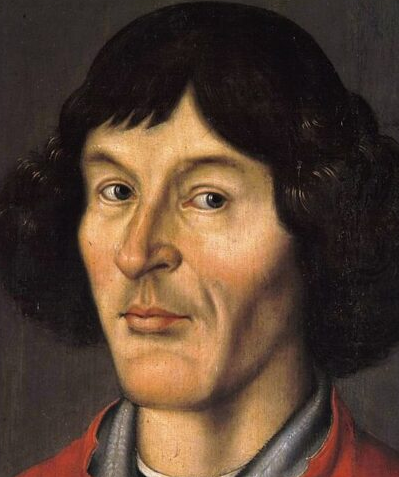
(Nicolaus Copernicus)
生い立ち・生涯
ニコラウス・コペルニクスの生い立ち・生涯
年代背景とポーランドでの誕生
1473年2月19日、ニコラウス・コペルニクスは現在のポーランド領トルンで生まれました。
当時のヨーロッパはルネサンス期を迎え、知識の再興と芸術の繁栄が見られました。
コペルニクスの生まれたポーランドは、政治的には神聖ローマ帝国の一部でしたが、文化的には東西の影響が融合し、独自の芸術や学術が栄えていました。
教育と宗教的背景
コペルニクスはトルンで教育を受け、後にクラクフ、ブレスラウ、イタリアのボローニャで学びました。
彼の教育は古代ギリシャやローマの古典、天文学、数学、神学などに及びました。
彼はカトリック教徒として育ち、敬虔な信仰を持っていましたが、後に彼の天文学的な発見が教会の教義と衝突することになります。
天文学への関心と業績
コペルニクスは特に天文学に興味を持ち、地動説の概念を提唱することになる重要な業績を残しました。
彼の最も有名な著作である『天球の回転について』は、地球が太陽の周りを公転し、自転することを主張しています。
これは当時の一般的な地動説とは異なる考え方であり、後に近代天文学の基盤となりました。
『天球の回転について』の完成と出版
コペルニクスは『天球の回転について』の執筆に約30年を費やし、その完成を見ることはありませんでした。
1543年、彼の死の翌年に、この著作が出版されました。
この著作は当初は一般的な関心を引きませんでしたが、後にその革新的な理論が広く受け入れられ、科学革命の端緒となりました。
科学史への影響と遺産
コペルニクスの業績は、科学史において不朽のものとなりました。
彼の地動説はガリレオ・ガリレイやヨハネス・ケプラーら後の天文学者たちによってさらに発展させられ、近代天文学の基盤を築きました。
彼の業績は、宇宙観や人類の地位に関する考え方を根本的に変え、人類の知識の進歩に大きな寄与をしました。
ニコラウス・コペルニクスの生涯は、その天文学的な業績だけでなく、当時のヨーロッパの文化や宗教的背景との関わりも含んでいます。
彼の地動説は科学的な革新をもたらし、人類の宇宙観を根本的に変えました。
Life and Legacy
Nicolaus Copernicus: His Life and Legacy
Background and Birth in Poland
On February 19, 1473, Nicolaus Copernicus was born in Thorn, which is now part of Poland.
During Copernicus’ birth, Europe was entering the Renaissance period, marked by a revival of knowledge and flourishing arts.
Poland, where Copernicus was born, was politically part of the Holy Roman Empire but culturally influenced by both Eastern and Western traditions, fostering its own arts and academics.
Education and Religious Background
Copernicus received his education in Thorn, later studying in Krakow, Breslau, and Bologna, Italy.
His education covered ancient Greek and Roman classics, astronomy, mathematics, and theology.
Raised as a Catholic, Copernicus had a devout faith, but his astronomical discoveries later clashed with church doctrines.
Interest in Astronomy and Achievements
Copernicus developed a keen interest in astronomy and achieved significant milestones, particularly with his heliocentric theory.
His most renowned work, “On the Revolutions of the Celestial Spheres,” proposed that the Earth revolves around the Sun and rotates on its axis.
This theory diverged from the prevailing geocentric model and laid the foundation for modern astronomy.
Completion and Publication of “On the Revolutions”
Copernicus spent about 30 years writing “On the Revolutions of the Celestial Spheres” and did not live to see its publication.
In 1543, the year following his death, this work was published.
Initially, it did not attract widespread attention, but its innovative theories were eventually embraced, igniting the Scientific Revolution.
Impact on Science History and Legacy
Copernicus’ contributions became immortal in the annals of science history.
His heliocentric theory was further developed by later astronomers like Galileo Galilei and Johannes Kepler, shaping the modern foundations of astronomy.
His achievements fundamentally altered perspectives on cosmology and humanity’s place, significantly advancing human knowledge.
Nicolaus Copernicus’ life encompassed not only his astronomical achievements but also his interactions with the cultural and religious backdrop of Europe at the time.
His heliocentric theory brought about scientific innovations and revolutionized humanity’s understanding of the universe.
哲学・思想
ニコラウス・コペルニクスの哲学・思想
天文学の革新と地動説の提唱
ニコラウス・コペルニクスは、16世紀に地動説を提唱し、宇宙観に革命をもたらした重要な天文学者です。
彼は太陽を宇宙の中心に据え、地球や他の惑星が太陽の周りを公転するとする地動説を唱えました。
これは従来の地球中心の宇宙観である地心説とは対照的であり、当時の教会の教義とも一部衝突する考え方でした。
宇宙の秩序と数学的美
コペルニクスは宇宙の秩序と数学的美に深い関心を抱いていました。
彼の地動説は、天体の動きをより単純化し、数学的に理解しやすくするものでした。
彼は天体の運行を円軌道で説明し、この円の完全性と調和が宇宙の秩序を反映していると考えました。
これにより、宇宙の秩序と数学的な美が一体化するという彼の哲学的信念が表れました。
宇宙観の変革と人間の位置づけ
コペルニクスの地動説は、宇宙観を根本的に変えることになりました。
これにより、地球が宇宙の中心ではなく、太陽系の一部であるという新しい概念が生まれました。
人間は、宇宙の中心ではなく、単なる宇宙の一部であるという考え方が広まりました。
このことは人間の自己認識や地位にも影響を与え、地球中心の世界観から自由になる重要な一歩となりました。
宗教との関係と科学の発展
コペルニクスの地動説は当時の教会の教義と一部矛盾していました。
しかし、彼は教会との対立を避けるため、自説を控えめに提示しました。
それでも彼の業績は、後の時代の科学の発展に大きな影響を与えました。
ガリレオやケプラーなどの後の天文学者たちは、彼の理論をさらに発展させ、近代科学の基礎を築きました。
永遠の遺産と科学革命の先駆者
ニコラウス・コペルニクスの地動説は、科学史において不朽の遺産となりました。
彼の業績は、科学革命の先駆者として称賛され、彼の提唱した宇宙観は現代の天文学や宇宙科学の基礎となっています。
彼の哲学的な思考は、宇宙の秩序と数学的美、そして人間の地位と役割についての新しい考え方を切り拓きました。
Philosophy and Thought
Nicolaus Copernicus: Philosophy and Thought
Revolution in Astronomy and the Advocacy of Heliocentrism
Nicolaus Copernicus stands as a pivotal astronomer of the 16th century, revolutionizing cosmology with his advocacy of heliocentrism.
He posited that the Sun, rather than the Earth, lay at the center of the universe, with Earth and other planets revolving around it.
This concept contrasted sharply with the prevailing geocentric view and posed challenges to contemporary church doctrines.
Cosmic Order and Mathematical Beauty
Copernicus harbored a deep fascination with the cosmic order and mathematical beauty.
His heliocentric theory aimed to simplify the motions of celestial bodies, making them more mathematically comprehensible.
He explained planetary orbits in terms of circular paths, believing that the perfection and harmony of these circles reflected the order of the universe.
This philosophical belief of his integrated cosmic order with mathematical beauty.
Transformation of Cosmology and Human Positioning
Copernicus’ heliocentric theory fundamentally transformed cosmology.
It introduced the novel idea that Earth was not the center of the universe but part of a larger solar system.
This reshaped perceptions of human beings from the center of the universe to merely a part of it.
This shift marked an important step in self-perception and understanding, liberating humanity from the geocentric worldview.
Relationship with Religion and Advancement of Science
Copernicus’ heliocentric theory conflicted with some teachings of the church at the time.
However, to avoid direct confrontation, he presented his theories cautiously.
Nonetheless, his contributions profoundly influenced the development of science in subsequent eras.
Later astronomers like Galileo and Kepler further developed his theories, laying the groundwork for modern science.
Eternal Legacy and Pioneer of the Scientific Revolution
Nicolaus Copernicus’ heliocentric theory became an enduring legacy in the history of science.
He is celebrated as a pioneer of the Scientific Revolution, and his conceptualization of the cosmos forms the foundation of modern astronomy and cosmology.
His philosophical reflections paved the way for new perspectives on cosmic order, mathematical beauty, and the role of humanity.
特徴
ニコラウス・コペルニクスの特徴
天動説から地動説への転換
ニコラウス・コペルニクスは、地動説の提唱者として知られる天文学者であり、16世紀に宇宙観を革新しました。
彼の最も顕著な特徴の一つは、太陽を宇宙の中心に置き、地球や他の惑星が太陽の周りを公転する地動説を唱えたことです。
これは、従来の地球中心の宇宙観である天動説に挑戦するものであり、科学的な革命を引き起こしました。
数学的な厳密さと観測データへの基づく理論構築
コペルニクスは、彼の地動説を支持するために、数学的な厳密さと観測データに基づく理論を構築しました。
彼の天文学的な計算は、当時の技術水準を考慮しても驚異的なものであり、彼の理論が実際の観測と一致することを示しました。
彼は観測された天体の動きを正確に予測し、それを数学的に説明することで地動説の信憑性を高めました。
宗教との関係と警戒心
コペルニクスは、自らの地動説が当時の教会の教義と矛盾する可能性を理解しており、そのために彼は極めて慎重な態度をとりました。
彼は著書『天球の回転について』を出版する際に、教皇クレメンス7世に献呈し、その中で地動説が宗教的な信念と矛盾しないことを強調しました。
しかし、彼の地動説は後にガリレオなど他の科学者たちとの対立を引き起こし、宗教と科学の関係に影響を与えました。
科学革命の先駆者としての役割
ニコラウス・コペルニクスの業績は、科学史において不朽のものとなり、彼は科学革命の先駆者の一人として称賛されています。
彼の地動説は、地球中心の宇宙観を覆し、科学的な観察と理論の統合を促しました。
彼の業績は、後の時代の天文学者や科学者たちによって発展し、近代科学の基盤を築くことになりました。
Distinctive Traits
Nicolaus Copernicus: Distinctive Traits
Transition from Geocentrism to Heliocentrism
Nicolaus Copernicus is renowned as the advocate of heliocentrism, revolutionizing cosmology in the 16th century.
One of his most notable traits was proposing the heliocentric theory, placing the Sun at the center of the universe with Earth and other planets orbiting around it.
This challenged the conventional geocentric view and sparked a scientific revolution.
Mathematical Rigor and Theory Based on Observational Data
Copernicus constructed his theory with mathematical rigor and based it on observational data to support heliocentrism.
His astronomical calculations were remarkable given the technological limitations of his time, demonstrating that his theory aligned with actual observations.
He accurately predicted the motions of celestial bodies and enhanced the credibility of heliocentrism through mathematical explanations.
Relationship with Religion and Caution
Aware of the potential conflicts between his heliocentric theory and contemporary church doctrines, Copernicus approached his work with extreme caution.
When publishing his work “On the Revolutions of the Heavenly Spheres,” he dedicated it to Pope Clement VII, emphasizing that heliocentrism did not contradict religious beliefs.
However, his theory later sparked conflicts with other scientists like Galileo, impacting the relationship between religion and science.
Role as a Pioneer of the Scientific Revolution
Nicolaus Copernicus’ contributions have become timeless in the history of science, celebrating him as a pioneer of the Scientific Revolution.
His heliocentric theory overturned the Earth-centric view of the universe, integrating scientific observation with theory.
His achievements laid the foundation for later astronomers and scientists, shaping modern science and paving the way for new discoveries.
エピソード
ニコラウス・コペルニクスの逸話
宇宙の秘密を描く若き日の夢
ニコラウス・コペルニクスは、ポーランドのトルンで1473年に生まれました。
彼が幼少期に抱いた興味の一つは、天文学でした。幼い頃から星空を見上げ、宇宙の秘密に思いを馳せていたとされています。
彼の父親は裕福な商人でしたが、ニコラウスが宇宙を研究することに情熱を傾けることを決して応援しました。
大学での学びと天文学への志向
コペルニクスはクラクフ大学で学び、後にイタリアのボローニャ大学やフェラーラ大学で法学を学びました。
しかし、彼の関心は法律よりも天文学に向かっていました。
特に、古代ギリシャの天文学者プトレマイオスの地動説に疑問を抱き、新しい宇宙像を追求することに心を奪われていました。
大胆な説の完成と出版への道
彼は30年以上にわたり、観測データを集め、数学的な計算を行い、地動説のアイデアを練り上げました。
そして、《天球の回転について》という論文にまとめました。
この論文では、太陽が地球の周りを回る地動説を提唱しました。
しかし、彼の地動説は当時の一般的な宇宙像に挑戦するものであり、大胆な提案でした。
出版と非難
1530年代に《天球の回転について》が出版されましたが、コペルニクスはその完成を見ることはありませんでした。
彼の著作は一部の学者や天文学者には歓迎されましたが、教会や保守的な学者からは非難されました。
当時の教会の教義と地動説の矛盾が問題視され、コペルニクスは異端として扱われることを恐れていました。
時代を超えた影響
コペルニクスの地動説は、後にガリレオ・ガリレイやヨハネス・ケプラーなどの天文学者によって発展され、最終的には科学的な真実として受け入れられることになりました。
彼の業績は科学史上不朽のものとなり、彼自身も科学的な革命の先駆者として称賛されています。
Anecdotes
Nicolaus Copernicus: Anecdotes
Dreaming of Unveiling the Secrets of the Universe in His Youth
Nicolaus Copernicus was born in 1473 in Thorn, Poland.
One of his childhood interests was astronomy. From a young age, he gazed at the starry sky, pondering the mysteries of the universe.
His father, a wealthy merchant, never hesitated to support Copernicus’s passionate pursuit of studying the cosmos.
University Education and Pursuit of Astronomy
Copernicus studied at the University of Krakow and later pursued law at the University of Bologna and the University of Ferrara in Italy.
However, his interest leaned more towards astronomy than law.
In particular, he began to question the geocentric model proposed by the ancient Greek astronomer Ptolemy, becoming captivated by the pursuit of a new cosmology.
Completion of a Bold Theory and Path to Publication
Over more than 30 years, he gathered observational data, conducted mathematical calculations, and formulated the idea of heliocentrism.
Finally, he compiled his ideas into the manuscript “On the Revolutions of the Celestial Spheres.”
In this work, he proposed the heliocentric theory, where the Sun revolves around the Earth.
However, his heliocentric theory challenged the prevailing cosmological beliefs of the time and was a bold proposition.
Publication and Criticism
“In On the Revolutions of the Celestial Spheres” was published in the 1530s, though Copernicus did not live to see its completion.
While his work was welcomed by some scholars and astronomers, it faced criticism from the Church and conservative scholars.
The contradiction between the Church’s doctrine and heliocentrism was contentious, and Copernicus feared being branded a heretic.
Enduring Influence
Copernicus’s heliocentric theory was further developed by later astronomers such as Galileo Galilei and Johannes Kepler, eventually being accepted as scientific truth.
His contributions became immortalized in the history of science, and he himself is revered as a pioneer of the scientific revolution.
トマス・モア(1478年2月7日 – 1535年7月6日)
Thomas More (February 7, 1478 – July 6, 1535)
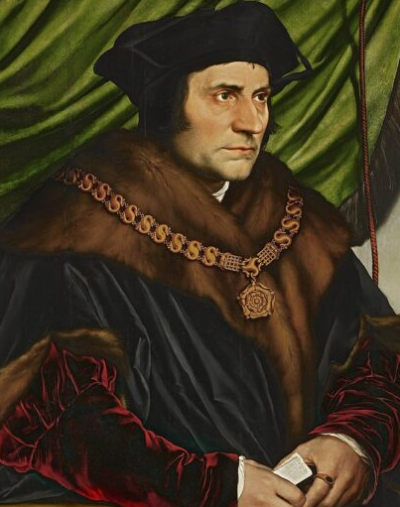
Thomas More
『 サー・トマス・モアの肖像』
生い立ち・生涯
トマス・モア:理想の国を求めて
英国の先駆的思想家の誕生
トマス・モアは1478年、ロンドンで生まれました。
裕福な商人の家に生まれた彼は、幼少期から厳格なカトリック教徒として育ちました。
その教育は、後の彼の思想や行動に大きな影響を与えました。
法律家から政治家へ
モアはオックスフォード大学で古典学と法律を学び、優れた法学者として名を馳せました。
その後、弁護士として活動し、その優れた才能によって王室の法律顧問としての地位を築きました。
さらに、1517年には下院議員に選出され、その政治的キャリアをスタートさせました。
人文主義者としての輝き
モアはその知性と教養ゆえに、人文主義者としても知られています。
当時のイギリスでは、人文主義が花開き、古典文学の研究や宗教改革の動きが広がっていました。
モアは人文主義の理念に共鳴し、古典の価値観や倫理に基づく社会の実現を目指しました。
《ユートピア》の理想郷
モアの最も有名な著作は、1516年に発表された『ユートピア』です。
この作品は架空の国家を描き、理想的な社会秩序を探求しました。
ユートピアは平等な社会であり、私有財産や金銭の概念がなく、労働や財産の共有が行われていました。
この作品は後の社会主義や共産主義の思想家に多大な影響を与えました。
王権との葛藤
モアは信念を貫き、王権に対する反対の姿勢を示しました。
ヘンリー8世がカトリック教会からの離脱を宣言した際、モアはその決定を支持せず、国王との関係が悪化しました。
結果として、モアは反逆罪で告発され、1535年に処刑される運命を辿りました。
遺産と影響
トマス・モアは、その生涯を通じて理想主義と信念を貫いた人物でした。
彼の『ユートピア』は、政治・経済・社会のあり方に関する議論の基礎となり、現代においてもその思想は重要な影響力を持ち続けています。
Early Life and Career
Thomas More: In Search of the Ideal State
Birth of a Pioneering Thinker in England
Thomas More was born in 1478 in London.
Born into a wealthy merchant family, he was raised as a devout Catholic from a young age.
His education had a profound impact on his later thoughts and actions.
From Lawyer to Statesman
More studied classics and law at Oxford University, gaining renown as a brilliant legal scholar.
Subsequently, he practiced law and rose to become a legal advisor to the royal court.
In 1517, he was elected as a member of the House of Commons, launching his political career.
Radiance as a Humanist
More is also known as a humanist due to his intellect and erudition.
During that era in England, humanism flourished, promoting the study of classical literature and sparking movements for religious reform.
More resonated with humanist ideals, aiming to realize a society based on classical values and ethics.
“Utopia” – The Ideal Commonwealth
More’s most famous work, “Utopia,” was published in 1516.
This work depicts a fictional state and explores an ideal social order.
Utopia is portrayed as an egalitarian society where private property and the concept of money are absent, with communal labor and property sharing prevailing.
This work profoundly influenced later socialist and communist thinkers.
Conflict with Royal Authority
More steadfastly held to his beliefs, showing opposition to royal authority.
When Henry VIII declared separation from the Catholic Church, More did not support this decision, leading to a deterioration in his relationship with the king.
As a result, More was accused of treason and executed in 1535.
Legacy and Influence
Throughout his life, Thomas More upheld idealism and conviction.
His “Utopia” laid the groundwork for discussions on politics, economics, and social structure, continuing to exert significant influence in modern thought.
哲学・思想
トマス・モアの哲学・思想
モアの思想の背景と基盤
トマス・モアは16世紀初頭のイギリスで生まれ、宗教改革期に活躍した哲学者・政治家です。
彼の思想は、当時の宗教的・政治的な状況や人文主義の影響を受けています。
モアはカトリック教会の教えに深く根ざした教養を持ち、人文主義の理念に共鳴しました。
信仰と理性の融合
モアは信仰と理性の融合を重視しました。
彼の哲学は、神の摂理と人間の理性が調和することを主張しました。
彼はカトリック教会の教えを重んじつつ、理性や知識の追求を通じて人間の尊厳や社会の改革を目指しました。
『ユートピア』と理想社会の探求
モアの最も有名な著作である『ユートピア』は、理想社会を探求する試みでした。
この作品では、平等や共有財産、労働の価値など、当時の社会的・政治的課題に対する解決策が提示されています。
『ユートピア』は宗教的価値観や倫理観に基づいた理想社会の構築を試み、後の社会思想に大きな影響を与えました。
王権に対する抵抗と良心の自由
モアは王権に対する絶対的な服従を拒否しました。
彼は自らの良心に従い、王の権威が神の法に反する場合は抵抗する権利があると主張しました。
そのため、モアはヘンリー8世のカトリック教会離脱に反対し、結果的に処刑されることになりました。
彼の行動は、個々の良心の自由と道徳的責任の重要性を強調しました。
モアの影響と遺産
トマス・モアの哲学と思想は、その後のイギリスおよび世界の政治思想に大きな影響を与えました。
彼の著作や行動は、人間の尊厳や社会的正義の追求に対する永続的な課題を提起しました。
また、彼の抵抗の姿勢は、近代の良心の自由や政治的抵抗の理論の基盤となりました。
モアの影響は、その後の歴史的・哲学的議論においても重要な位置を占めています。
Philosophy and Thought
Thomas More’s Philosophy and Thought
Background and Foundation of More’s Thought
Thomas More, born in early 16th-century England, was a philosopher and statesman who thrived during the period of religious reform.
His philosophy was influenced by the religious and political circumstances of his time, as well as by humanist ideals.
More possessed a deep-rooted education in Catholic teachings and resonated with the ideals of humanism.
Integration of Faith and Reason
More emphasized the integration of faith and reason in his philosophy.
He argued for the harmony between God’s providence and human reason.
While esteeming Catholic Church teachings, More aimed at human dignity and social reform through the pursuit of reason and knowledge.
“Utopia” and the Quest for an Ideal Society
More’s most famous work, “Utopia,” was an attempt to explore an ideal society.
In this work, solutions to contemporary social and political issues such as equality, communal property, and the value of labor were proposed.
“Utopia” attempted to construct an ideal society based on religious values and ethical principles, exerting significant influence on later social thought.
Resistance against Royal Authority and Freedom of Conscience
More refused absolute obedience to royal authority.
He asserted the right to resist if the king’s authority contradicted divine law, following his own conscience.
Therefore, More opposed Henry VIII’s break from the Catholic Church and was eventually executed as a result.
His actions emphasized the importance of individual freedom of conscience and moral responsibility.
Influence and Legacy of More
Thomas More’s philosophy and thought significantly influenced subsequent political thought in Britain and worldwide.
His writings and actions raised enduring challenges concerning human dignity and the pursuit of social justice.
Moreover, his stance of resistance laid the foundation for theories of modern freedom of conscience and political resistance.
More’s influence continues to hold a prominent position in historical and philosophical discourse.
特徴
トマス・モアの特徴
1. 教養豊かな人文主義者
トマス・モアは、16世紀初頭のイギリスで生まれました。
彼は教養豊かな人文主義者であり、当時のカトリック教会の教えに深く根ざした教養を持っていました。
人文主義の理念に共鳴し、古典文学や哲学に造詣が深かったことが知られています。
2. 『ユートピア』の著者
トマス・モアの最も有名な著作は『ユートピア』です。
この作品は1516年に出版され、理想社会を描写しています。
『ユートピア』では、共有財産、平等、宗教的寛容などの理念が提案され、当時の社会の問題点を指摘しました。
この作品は後世の社会思想に大きな影響を与えました。
3. 王権に対する抵抗
モアは、個々の良心の自由と王権に対する抵抗の権利を強く信じていました。
彼はヘンリー8世のカトリック教会からの離脱に反対し、その結果、王権との対立を招きました。
彼は自らの信念に忠実であり、王権の権威が神の法に反する場合は抵抗すべきだと主張しました。
4. 高潔な人物像
トマス・モアはその生涯を通じて高潔な人物像で知られています。
彼は宗教的信念や倫理観に基づき、自らの信念に忠実に行動しました。
彼の抵抗の姿勢や良心の自由への信念は、後の歴史的な議論においても重要な影響を与えました。
5. 永遠の影響
トマス・モアの思想や行動は、その後の政治思想や社会倫理に大きな影響を与えました。
彼の著作や人生は、人間の尊厳や社会的正義の追求に対する永遠の課題を提起し、後世の哲学者や政治家に多大な影響を与えています。
Characteristics
Thomas More’s Characteristics
- Cultured Humanist
Thomas More was born in early 16th-century England.
He was a cultured humanist deeply rooted in the teachings of the Catholic Church of his time.
Known for resonating with humanist ideals, More had a profound understanding of classical literature and philosophy.
- Author of “Utopia”
Thomas More’s most famous work is “Utopia.”
Published in 1516, this work depicts an ideal society.
“Utopia” proposes concepts such as communal property, equality, and religious tolerance, addressing societal issues of the time.
This work exerted significant influence on later social thought.
- Resistance against Royal Authority
More strongly believed in the freedom of individual conscience and the right to resist royal authority.
He opposed Henry VIII’s break from the Catholic Church, leading to conflict with the monarchy.
True to his beliefs, More argued that one should resist authority if it contradicts divine law.
- Noble Character
Throughout his life, Thomas More was known for his noble character.
He acted in accordance with his religious beliefs and ethical principles.
His stance on resistance and belief in freedom of conscience had a profound impact on subsequent historical debates.
- Eternal Influence
Thomas More’s thoughts and actions had a profound influence on later political thought and social ethics.
His writings and life continue to raise enduring questions about human dignity and the pursuit of social justice, influencing philosophers and politicians in later generations.
エピソード
トマス・モアの逸話
モアとフランスの人文主義者エラスムス
トマス・モアとエラスムスの友情は、ルネサンス期の人文主義の典型的な例です。
エラスムスは当時、ヨーロッパの知識人の間で非常に尊敬されており、その影響力は広範囲に及んでいました。
モアとエラスムスは共に人文主義の理念を追求し、古典の研究や聖書の翻訳に取り組んでいました。
彼らの友情は、互いの著作や手紙のやり取りから見て取れます。
ユートピアという理想郷
トマス・モアの代表作である『ユートピア』には、興味深い逸話が数多く含まれています。
この作品は、架空の島国ユートピアを舞台に、理想的な社会を描いたものです。
その中で、モアは様々な社会制度や政治体制を詳細に描写し、読者に問いかけます。
この作品は、当時の社会に対するモアの批判や彼の理想郷に対する夢想を表現しています。
モアの処刑
トマス・モアは、ヘンリー8世の宗教改革に反対し、カトリック教会に忠実であることを貫きました。
しかし、モアが王権に反対したことで、彼は反逆罪に問われることとなりました。
1535年には、王権に服従することを拒否し、結果的に処刑されることになります。
彼はその死に際しても、自らの信念を曲げず、高潔な姿勢を貫きました。
「モアの笑い」
トマス・モアは非常に機知に富んだ人物であり、「モアの笑い」として知られる独特のユーモアも持っていました。
彼の批判的な観点や風刺的な言葉遣いは、時には政治的な敵を皮肉ったり、社会の不条理を嘲笑したりするために使用されました。
モアの笑いは、彼の思想や行動に深い人間性を与える一因となっています。
モアの遺産
トマス・モアはその生涯を通じて、自らの信念に忠実であること、高潔な態度を貫くことで知られています。
彼の逸話は、彼の人間性や時代背景における彼の役割をよく示しています。
彼の著作や行動は、後世の人々に多大な影響を与え、彼の遺産は現代の政治思想や社会倫理においても色濃く残っています。
Episodes
Anecdotes of Thomas More
More and the Humanist Erasmus
The friendship between Thomas More and the French humanist Erasmus is a quintessential example of Renaissance humanism.
Erasmus was highly respected among Europe’s intellectuals at the time, wielding influence across a wide spectrum.
More and Erasmus both pursued the ideals of humanism, engaging in studies of classical literature and translations of the Bible.
Their friendship is evident from their exchange of works and letters.
The Utopian Ideal
Thomas More’s masterpiece, “Utopia,” contains numerous intriguing anecdotes.
Set on the fictional island of Utopia, this work portrays an ideal society.
Within it, More meticulously describes various social systems and political structures, prompting readers to ponder.
The work expresses More’s critiques of contemporary society and his dreams of a utopian realm.
More’s Execution
Thomas More staunchly opposed Henry VIII’s religious reforms and remained faithful to the Catholic Church.
However, More’s opposition to royal authority led to charges of treason.
In 1535, he refused to submit to the king and was ultimately executed.
Even in death, he maintained his unwavering beliefs and noble stance.
“More’s Laughter”
Thomas More was remarkably witty, known for a unique humor dubbed “More’s Laughter.”
His critical viewpoints and satirical language were used at times to mock political adversaries or ridicule societal absurdities.
More’s humor adds depth to his thoughts and actions, revealing his profound humanity.
More’s Legacy
Throughout his life, Thomas More was celebrated for his steadfast commitment to his beliefs and noble demeanor.
His anecdotes vividly illustrate his character and role in the historical context.
His writings and actions continue to exert significant influence on later generations, leaving a profound mark on contemporary political thought and social ethics.
マルティン・ルター(1483年11月10日 – 1546年2月18日)
Martin Luther (November 10, 1483 – February 18, 1546)
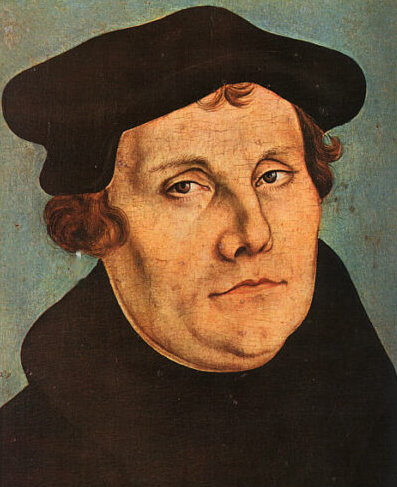
Martin Luther
ルーカス・クラナッハ画(1529年)
生い立ち・生涯
マルティン・ルターの生い立ちと生涯
幼少期から教育への道
マルティン・ルターは1483年、神聖ローマ帝国のエレンフェルトで生まれました。
彼の父親は鉱山労働者でしたが、ルターの才能を見出し、息子に教育を施すことを決意します。
幼少期から学問への興味を持ち、後に大学での学業に進むことになります。
神学と聖職者の道へ
1510年、ルターはエアフルト大学で神学の学位を取得し、その後聖職者として働くために聖職者の道に進みます。
彼はその聖職者としての生活の中で、キリスト教の教義や聖書の研究に没頭しました。
特に、ローマ教会の教えに疑問を持ち始め、後に彼の思想の大きな転換点となるであろう出来事が起こります。
聖務から宗教改革への道
1517年、ルターは教会の腐敗や教会が行う贖罪状の販売に反対する95箇条の論題を発表しました。
これが有名な「マルティン・ルターの95ヶ条の論題」です。
これがキリスト教会における宗教改革の火種となり、ルターはキリスト教会の体制に対する反抗を強めます。
彼は聖書をドイツ語に翻訳し、一般大衆に聖書の内容を理解できるようにしました。
また、信仰において人は教会の指導に依存せず、個人の信仰に基づいて救いを見出すべきだと主張しました。
皇帝との対立と宗教戦争
ルターの主張は当時の教会や政治権力との対立を引き起こしました。
彼は皇帝カール5世やローマ教皇と対立し、宗教改革の運動は宗教戦争に発展していきます。
彼の影響力はドイツだけに留まらず、ヨーロッパ全体に広がりました。彼は多くの支持者を集め、プロテスタント教会の創設に寄与しました。
死と遺産
マルティン・ルターは1546年にエアフルトで亡くなりましたが、彼の宗教改革の運動はその死後も続き、ヨーロッパの宗教や文化に深い影響を与えました。
彼の功績は宗教改革のみならず、教育や言論の自由、個人の信仰の自由など、近代ヨーロッパ社会の基盤を築く上で重要な役割を果たしました。
Martin Luther’s Early Life and Lifelong Journey
Martin Luther was born in 1483 in Eisleben, part of the Holy Roman Empire.
His father, a miner, recognized Luther’s talents and decided to provide him with an education.
From a young age, Luther showed an interest in learning, eventually progressing to university studies.
Path to Theology and Clergy
In 1510, Luther earned his theology degree from the University of Erfurt and embarked on the path to priesthood.
As a clergyman, he immersed himself in studying Christian doctrines and the Bible.
He began questioning the teachings of the Roman Catholic Church, a pivotal moment that would shape his future thoughts profoundly.
From Clerical Duties to Religious Reformation
In 1517, Luther posted his famous “Ninety-five Theses,” challenging the church’s corruption and the sale of indulgences.
This act sparked the Protestant Reformation within the Christian Church, as Luther increasingly defied its authority.
He translated the Bible into German, enabling broader access and understanding of its teachings among the populace.
Luther argued that individuals should find salvation through personal faith rather than relying on the church’s guidance.
Conflict with the Emperor and Religious Wars
Luther’s beliefs ignited conflicts with Emperor Charles V and the Pope, escalating into religious wars.
His influence extended beyond Germany, shaping Protestantism across Europe and gathering many followers.
Death and Legacy
Martin Luther passed away in 1546 in Eisleben, but his Reformation movement continued posthumously, profoundly impacting European religion and culture.
His contributions extend beyond religious reform to include advancements in education, freedom of speech, and individual religious beliefs, laying crucial foundations for modern European society.
哲学・思想
マルティン・ルターの哲学と思想
1. 宗教改革の原動力としての信仰
マルティン・ルターは16世紀初頭、当時のカトリック教会の権威に疑問を持ち、信仰の根源を聖書に求めるべきだという信念を抱いていました。
彼は神の恵みによる信仰のみによって人は救われるという主張を唱え、業による救いを否定しました。
この信仰による救いの理念は、後のプロテスタント教会の基本的な教義の一つとなりました。
2. 聖書の普遍性と言論の自由
ルターは聖書を普遍的な啓示として認識し、信仰生活の指針としてのみならず、社会や政治のあり方にも適用すべきだと考えました。
彼は聖書の翻訳を進め、ドイツ語に訳した聖書を一般大衆に普及させました。
また、ルターは言論の自由の重要性を強調し、教会や政治権力に対して批判的な意見を自由に述べることを提唱しました。
3. 世俗と宗教の関係に対する理解
ルターは世俗の領域と宗教の領域を分けることを主張しました。
彼は「世俗の支配」(Die weltliche Obrigkeit)と「宗教の支配」(Die geistliche Obrigkeit)の二つの領域を区別し、世俗の支配には世俗的な法律や政府が、宗教の支配には霊的な指導者や教会が責任を持つべきだと述べました。
この考え方は、後のプロテスタント教会の政教分離の原則の基礎となりました。
4. 反ユダヤ主義の影響
一方で、ルターは一貫してユダヤ教に対して批判的であり、ユダヤ人に対する激しい言葉を発しています。
彼の著作の中には、ユダヤ教徒を罵倒し、迫害するようにとの主張も含まれています。
これらの見解は後の時代にユダヤ人に対する反感や迫害を助長する要因となりました。
5. 影響と遺産
マルティン・ルターの宗教改革運動は、キリスト教界における大きな転換点となりました。
彼の思想と行動は、宗教の自由と個人の信仰の権利を主張する基盤を築きました。
彼の教えは後のプロテスタント宗教の基盤となり、ヨーロッパ宗教史における重要な役割を果たしました。
Martin Luther’s Philosophy and Thought
- Faith as the Driving Force of Religious Reformation
In the early 16th century, Martin Luther questioned the authority of the Catholic Church and believed that faith should find its foundation in the Bible.
He asserted that salvation comes through faith alone by God’s grace, rejecting salvation through deeds.
This doctrine of salvation by faith alone became a fundamental tenet of later Protestant churches.
- Universality of Scripture and Freedom of Speech
Luther recognized the Bible as universal revelation, applicable not only as a guide for faith but also for shaping societal and political norms.
He promoted the translation of the Bible into German, making it accessible to the general public.
Additionally, Luther emphasized the importance of freedom of speech, advocating the free expression of critical opinions against church and political authorities.
- Understanding the Relationship Between Secular and Religious Spheres
Luther advocated for the separation of secular and religious domains.
He distinguished between “secular authority” (Die weltliche Obrigkeit) and “spiritual authority” (Die geistliche Obrigkeit), arguing that secular governance should be governed by secular laws and governments, while spiritual guidance should be the responsibility of spiritual leaders and churches.
This perspective laid the foundation for the principle of separation of church and state in later Protestant churches.
- Influence of Anti-Semitism
However, Luther consistently expressed criticism towards Judaism, using harsh language against Jewish people.
His writings included derogatory remarks and advocated for persecution against Jews.
These views contributed to fostering animosity and persecution against Jewish people in later periods.
- Impact and Legacy
Martin Luther’s religious reformation movement marked a significant turning point in the Christian world.
His ideas and actions established the groundwork for advocating religious freedom and the rights of individual faith.
His teachings formed the basis of later Protestant religions and played a crucial role in European religious history.
特徴
マルティン・ルターの特徴
1. 宗教改革のリーダーシップ
マルティン・ルターは16世紀初頭、カトリック教会の権威に疑問を投げかけ、宗教改革のリーダーとして活動しました。
彼は神の恵みによる信仰のみによって救われるという教義を提唱し、これは後にプロテスタント宗教の基盤となりました。
ルターの著作『95か条の論題』を公表した1517年は宗教改革の開始とされ、その影響はヨーロッパ全体に広がりました。
2. 聖書の普及と言論の自由
ルターは聖書の普及を奨励し、ドイツ語に翻訳された聖書の普及に貢献しました。
彼は聖書を個人の信仰生活や社会のあり方の指針として認識し、教会の教えや権威に対する独立した考えを示しました。
また、言論の自由を重視し、教会や政治権力に対する批判的な意見を自由に述べるべきだと主張しました。
3. 政治的影響と宗教的遺産
ルターの宗教改革運動は、その後のヨーロッパの政治と文化に大きな影響を与えました。
彼の教えは神権政治を否定し、国家の独立性や国民の権利を促進しました。
また、ルターの思想は後のプロテスタント宗教の基盤となり、さまざまな宗派や教団の形成に影響を与えました。
4. ユダヤ人への態度
一方で、ルターはユダヤ教やユダヤ人に対して批判的な態度を示しました。
彼の著作にはユダヤ人に対する攻撃的な表現が含まれており、後の時代に反ユダヤ主義の根拠となる要因となりました。
これはルターの思想と教えの中で悪名高い側面の一つです。
5. 文学と音楽の影響
ルターは文学や音楽の分野にも影響を与えました。
彼のドイツ語訳聖書はドイツ語の文学の発展に貢献し、ルター派の教会音楽は後のバロック音楽の発展に影響を与えました。
6. 死後の評価
マルティン・ルターは1546年に亡くなりましたが、彼の遺産はその後も続きました。
彼の思想と行動は近代の宗教、政治、文化に大きな影響を与え、今日でも彼の名前は宗教改革の象徴として親しまれています。
Characteristics
Martin Luther’s Characteristics
- Leadership in Religious Reformation
In the early 16th century, Martin Luther challenged the authority of the Catholic Church and emerged as a leader of the religious reformation.
He advocated the doctrine that salvation comes through faith alone by God’s grace, which became foundational to Protestantism.
The publication of Luther’s “95 Theses” in 1517 is considered the beginning of the Reformation, spreading its influence throughout Europe.
- Spread of the Bible and Freedom of Speech
Luther encouraged the dissemination of the Bible and contributed to its translation into German.
He viewed the Bible not only as a guide for individual faith but also for shaping societal norms, promoting independent thought from church teachings and authority.
Moreover, Luther emphasized the importance of freedom of speech, advocating the expression of critical opinions against church and political powers.
- Political Influence and Religious Legacy
Luther’s religious reformation movement profoundly influenced politics and culture in subsequent European history.
His teachings rejected divine right monarchy, promoting national independence and the rights of citizens.
Furthermore, Luther’s ideas laid the groundwork for various Protestant denominations and influenced their formation.
- Attitude Toward the Jews
Conversely, Luther displayed a critical attitude toward Judaism and Jewish people.
His writings included harsh criticisms and contributed to the basis of later anti-Jewish sentiments.
This aspect remains notorious within Luther’s ideology and teachings.
- Influence on Literature and Music
Luther also left an impact on literature and music.
His translation of the Bible into German contributed to the development of German literature, while Lutheran church music influenced the later development of Baroque music.
- Posthumous Evaluation
Martin Luther passed away in 1546, yet his legacy continued to unfold.
His thoughts and actions significantly influenced modern religion, politics, and culture, and today he is remembered as a symbol of the Reformation.
エピソード
マルティン・ルターの逸話
1. 雷雨の誓い
マルティン・ルターは宗教改革の立役者として知られていますが、その人間味あふれる逸話も多く残されています。
彼が修道院に籍を置いていた頃、ある日雷雨の中で恐れをなしていました。
その際に彼は、「助けてくれたら聖母マリアに修道士になると誓おう」と祈りました。
雷雨が収まった後、ルターはその誓いを果たすために修道院に入ることとなりました。
この出来事は後に、彼の宗教的な信仰心と決意の象徴として語り継がれました。
2. キリスト像に訴えるルター
マルティン・ルターは当時の教会の権威に対する疑問を抱き、その独自の信仰を追求しました。
ある日、彼がローマを訪れていた際、ラテン語の大学教授としての職務を果たしていた彼は、聖ピエトロ大聖堂の階段を膝で登る信者たちを目撃しました。
そこで、彼は「信仰によって義とされる」という信念に立ち返り、その後にあるキリスト像に訴えかけました。
彼はその後、この経験を契機に、教会の販売する贖宥状に疑問を抱き、後に「95か条の論題」を公表するきっかけとなりました。
3. ヴォルムスの帝国議会での潔白の主張
マルティン・ルターは宗教改革の結果、教会との対立を深め、1521年のヴォルムス帝国議会で異端として告発されました。
この際、ルターは自らの信念を曲げず、「わたしの良心に拠って、わたしはそれを否定できません。
神の聖書によって証明されることがない限り、私は私の誤りを取り除すことはできません」と述べ、信仰を曲げない姿勢を示しました。
この言葉は、後のプロテスタントの信仰の礎となりました。
4. 護送中の「ソロ・デウス・グロリア」
ルターがヴォルムスからの帰途にあった際、友人たちによって身を隠され、彼自身は騎士の姿に変装していました。
道中、友人がルターの安全を心配して彼を励ますと、彼は「もし私が逃れることができないなら、私の説く真理が最後まで生き残るように。
もし逃れることができるなら、私はソロ・デウス・グロリア(唯神の栄光)を説くことに費やします」と答えました。
この言葉は、彼の信念と決意を象徴するものとして親しまれています。
マルティン・ルターの逸話は、彼の人間的な側面や信仰心、決意を伝える貴重なエピソードです。
これらの逸話は彼の時代を超えて語り継がれ、彼の宗教改革の功績と人間性を伝えるものとなっています。
Episodes
Anecdotes of Martin Luther
- Oath during a Thunderstorm
Martin Luther is renowned as a leader of the Protestant Reformation, yet his life is also enriched with humanizing anecdotes.
During his time in the monastery, Luther found himself fearful during a thunderstorm one day.
In that moment, he prayed, “If you help me, I will become a monk to the Virgin Mary.” After the storm passed, Luther fulfilled this oath by entering the monastery.
This event later became a symbol of his religious faith and determination.
- Appeal to the Christ Figure
Martin Luther harbored doubts about the authority of the Church at the time and pursued his unique faith.
While visiting Rome in his capacity as a Latin professor, Luther witnessed believers climbing the stairs of St. Peter’s Basilica on their knees.
Reflecting on the belief that “the just shall live by faith,” he later appealed to a Christ figure, a pivotal moment prompting his questioning of indulgences sold by the Church, eventually leading to the publication of his “95 Theses.”
- Assertion of Innocence at the Diet of Worms
As a result of the Protestant Reformation, Martin Luther’s conflict with the Church deepened, and he was accused of heresy at the Diet of Worms in 1521.
During this trial, Luther stood firm in his beliefs, stating, “Here I stand. I can do no other. God help me. Amen. I cannot retract unless I am convinced by Scripture or by clear reasoning, for I do not trust either in the Pope or in councils alone, since it is well known that they have often erred and contradicted themselves.”
These words became foundational to Protestant faith.
- “Sola Deo Gloria” during Confinement
While returning from Worms under covert protection from friends, Luther disguised himself as a knight.
Concerned for his safety, his friends reassured him, to which Luther responded, “If I cannot escape, I will preach the truth I have taught until my death; if I can, I will spend my time in soli Deo gloria (glory to God alone).”
This statement has become a cherished symbol of his convictions and determination.
Martin Luther’s anecdotes reveal his human side, faith, and unwavering determination.
These stories transcend his time, conveying both his accomplishments in the Protestant Reformation and his humanity.
パラケルスス(1493年11月10日または12月17日 – 1541年9月24日)
Paracelsus (born November 10 or December 17, 1493 – died September 24, 1541)
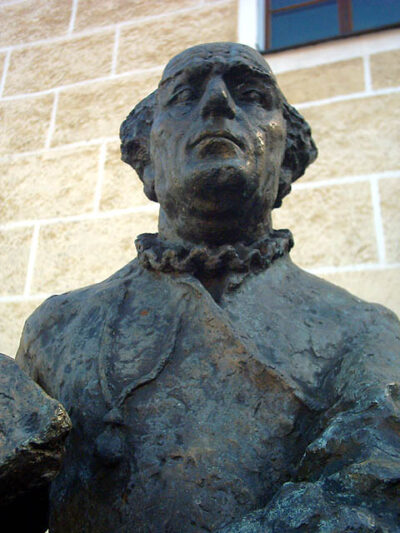
Monument of Paracelsus in Beratzhausen, Bavaria, Germany
生い立ち・生涯
パラケルススの生い立ちと生涯
天才医師の誕生
パラケルスス(本名: フィリップス・テオパストゥス・ボンヘイマー)は、1493年にスイスのエアスに生まれました。
彼の誕生名は後にラテン語化され、「神の旅人」という意味の「パラケルスス」に改められました。
彼は医学と化学の分野で革新的な考えを持ち、ルネサンス期の医学界に大きな影響を与えました。
諸国を巡る修業
若い頃、パラケルススはヨーロッパ各地を巡り、様々な医学の知識を吸収しました。
彼は古代の著作や自然の観察に基づく医学的手法に加えて、神秘的な信念や錬金術の要素も取り入れました。
彼の旅は、後に彼の独自の医学理論を形成する上で重要な役割を果たしました。
医学の革新と対立
パラケルススはその独創的なアプローチで多くの患者を治療し、その成果で名声を博しました。
彼は伝統的な医学の教えに疑問を投げかけ、特に当時主流だったガレノスの教えに反対しました。
パラケルススは、病気の原因を体内のバランスや星の配置ではなく、環境や生活様式などの外部要因に求める考え方を提唱しました。
このため、彼は当時の医学界としばしば対立しました。
著作と影響
パラケルススは医学のみならず、錬金術や占星術にも深い関心を持っていました。
彼の著作には医学や錬金術に関する多くの論文が含まれており、その中には彼の独自の医学理論や治療法が記されています。
パラケルススの影響は彼の生前から広く及び、彼のアイデアは後の医学や化学の発展に大きな影響を与えました。
愛される反逆者の最期
1541年、パラケルススは疾病によりわずか48歳で亡くなりました。
彼は一般の人々からは英雄として愛され、今日でも彼の業績と影響力は高く評価されています。
彼の生涯は、医学の枠組みを超えて探求心と革新の精神を称えるものとして、後世に語り継がれています。
Birth and Life
The Early Life and Career of Paracelsus
Birth of a Medical Genius
Paracelsus (born Philippus Aureolus Theophrastus Bombastus von Hohenheim) was born in 1493 in Einsiedeln, Switzerland.
His birth name was later Latinized to “Paracelsus,” meaning “equal to or greater than Celsus,” signifying his destiny as a renowned physician.
He brought innovative ideas to the fields of medicine and chemistry, profoundly influencing the medical community during the Renaissance.
Travels and Studies Abroad
In his youth, Paracelsus traveled extensively throughout Europe, absorbing diverse medical knowledge.
He incorporated not only ancient texts and natural observations into his medical practices but also mystical beliefs and elements of alchemy.
His travels played a crucial role in shaping his unique medical theories.
Medical Innovations and Controversies
Paracelsus treated numerous patients with his innovative approaches, gaining fame for his successes.
He challenged traditional medical teachings, particularly opposing the prevalent Galenic doctrines of his time.
Paracelsus proposed that diseases stemmed from external factors such as environment and lifestyle, rather than internal balances or celestial alignments.
As a result, he frequently clashed with the medical establishment of his era.
Writings and Influence
Paracelsus held deep interests not only in medicine but also in alchemy and astrology.
His writings encompassed numerous treatises on medicine and alchemy, outlining his distinctive medical theories and treatments.
His influence extended widely during his lifetime, significantly impacting the subsequent developments in medicine and chemistry.
The Beloved Rebel’s Legacy
In 1541, Paracelsus passed away at the age of 48 due to illness.
He was cherished by the public as a hero, and his contributions and influence continue to be highly regarded today.
His life celebrates a spirit of inquiry and innovation that transcends the boundaries of traditional medicine, a legacy that has been passed down through the ages.
哲学・思想
パラケルススの哲学・思想
1. 自然の秘密への探究
パラケルススは自然界の秘密を解き明かすことに情熱を燃やしました。
彼は自然の中に神秘や奇跡を見出し、従来の医学や科学の枠組みを超えて自然の法則を探求しました。
彼は自然界の微細なプロセスやエネルギーの流れに興味を持ち、人間の身体や病気の原因を解明するために錬金術的な手法を採用しました。
2. 錬金術と医学の融合
パラケルススは医学と錬金術を融合させることで、独自の治療法を開発しました。
彼は物質の変化や精神と物質の関連性について深く探求し、鉱物や植物から薬品を抽出する錬金術の手法を医学に応用しました。
また、彼は錬金術の象徴的な意味や神秘的な側面にも注目し、それらを医学の理論と結びつけました。
3. 人間の身体と精神の関係
パラケルススは、人間の身体と精神の密接な関係を強調しました。
彼は病気が単なる身体的な不調だけでなく、心のバランスや精神の健康にも影響を与えると考えました。
そのため、彼の治療法は単に症状の治療に留まらず、患者の心身の調和を回復することを目指しました。
4. 自然治癒力の重視
パラケルススは自然治癒力の重要性を強調しました。彼は人間の身体が自然に持つ治癒力を信じ、その力を活性化させる方法を模索しました。
彼の治療法は、患者の自然治癒力を喚起し、自然の力を利用して病気を克服することを目指しました。
5. 医学の革新と伝統への挑戦
パラケルススは従来の医学の教えに疑問を投げかけ、多くの伝統的な概念や治療法に反対しました。
彼はガレノスの教えや四体液説を否定し、病気の原因を環境や生活様式などの外部要因に求めました。
このような挑戦的な姿勢は、当時の医学界としばしば対立を引き起こしましたが、同時に医学の革新を促進しました。
6. 影響と遺産
パラケルススの思想と哲学は後世の医学や科学に大きな影響を与えました。
彼の錬金術的な手法や自然主義の思想は、現代の統合医療やホメオパシーなどの代替医療にも影響を与えています。
また、彼の精神的な探求と実践的な医学の結びつきは、現代のホリスティック医学の基礎となっています。
Philosophy and Thought
Paracelsus’s Philosophy and Thought
- Quest for the Secrets of Nature
Paracelsus was passionately devoted to unraveling the mysteries of the natural world.
He found mysticism and miracles within nature, going beyond the conventional frameworks of medicine and science to explore the laws of nature.
He was intrigued by the subtle processes of nature and the flow of energies, adopting alchemical methods to elucidate the causes of human bodily functions and diseases.
- Fusion of Alchemy and Medicine
Paracelsus pioneered unique therapies by merging medicine with alchemy.
He deeply explored the transformation of substances and the relationship between the mind and matter, applying alchemical techniques of extracting medicines from minerals and plants to medical practice.
Moreover, he highlighted the symbolic and mystical aspects of alchemy, intertwining them with medical theories.
- Relationship Between the Human Body and Mind
Paracelsus emphasized the intimate connection between the human body and mind.
He believed that illnesses affected not only physical health but also the balance of the mind and spiritual well-being.
Therefore, his treatments aimed not just to alleviate symptoms but also to restore harmony between the mind and body of the patients.
- Emphasis on the Healing Power of Nature
Paracelsus underscored the importance of the body’s innate ability to heal itself.
He had faith in the natural healing powers inherent in the human body and sought ways to activate and enhance these powers.
His therapeutic approach aimed to awaken the natural healing forces within patients, utilizing the power of nature to overcome illnesses.
- Innovation in Medicine and Challenge to Tradition
Paracelsus questioned traditional medical teachings and opposed many conventional concepts and treatments.
He rejected Galenic doctrines and the theory of the four humors, attributing the causes of diseases to external factors such as environment and lifestyle.
Such challenging attitudes often led to conflicts with the medical establishment of his time but also spurred innovations in medicine.
- Influence and Legacy
Paracelsus’s thoughts and philosophies significantly influenced later developments in medicine and science.
His alchemical methods and naturalistic ideas continue to impact alternative medicines like integrative medicine and homeopathy today.
Furthermore, his integration of spiritual exploration with practical medicine laid the foundation for modern holistic medicine.
These aspects of Paracelsus’s philosophy and approach to medicine continue to resonate, celebrating his legacy as a pioneer in medical thought and practice.
特徴
パラケルススの特徴
1. 独自の医学理論の構築
パラケルススは、自然と人間の関係について独自の医学理論を構築しました。
彼は従来の医学や解剖学の枠組みに疑問を投げかけ、自然の法則と人間の身体の関連性を重視しました。
その結果、彼の医学は単なる症状の治療に留まらず、患者の生活環境や精神的な健康も考慮に入れたホリスティックなアプローチを取り入れました。
2. 錬金術と医学の融合
パラケルススは、医学と錬金術を融合させることで独自の治療法を開発しました。
彼は錬金術の手法を用いて植物や鉱物から薬品を抽出し、それを用いて病気を治療しました。
また、錬金術の思想や象徴主義を医学に取り入れ、身体と精神のバランスを回復するための方法を模索しました。
3. 自然治癒力の重視
パラケルススは、人間の身体が本来持っている自然治癒力を重視しました。
彼は患者の身体が自然の力を活用して病気を克服できると信じ、その力を喚起する方法を模索しました。
そのため、彼の治療法は薬物療法だけでなく、食事療法や運動療法なども含んでいました。
4. 精神と身体の関係の強調
パラケルススは、精神と身体の関係の重要性を強調しました。
彼は人間の身体が精神の状態に影響を受けると考え、心身のバランスを取り戻すことが治療の重要な要素であると主張しました。
そのため、彼の治療法は単なる症状の治療に留まらず、患者の心理的な健康も考慮に入れました。
5. 医学の伝統に挑戦
パラケルススは、従来の医学の教えに疑問を投げかけ、多くの伝統的な概念や治療法に反対しました。
彼はガレノスの教えや四体液説を否定し、病気の原因を外部要因や個々の生活環境に求めました。
このような挑戦的な姿勢は、当時の医学界としばしば対立を引き起こしましたが、同時に医学の革新を促進しました。
6. 影響と遺産
パラケルススの思想と医学理論は後世の医学や科学に大きな影響を与えました。
彼の独自のアプローチやホリスティックな医療の考え方は、現代の統合医療や代替医療の基盤となっています。
また、彼の精神と身体の関係に関する研究は、現代の心身医学の発展にも影響を与えています。
Characteristics
Paracelsus’s Characteristics
- Development of Unique Medical Theories
Paracelsus constructed his own medical theories regarding the relationship between nature and humans.
Questioning the frameworks of traditional medicine and anatomy, he emphasized the connection between natural laws and the human body.
As a result, his medicine incorporated a holistic approach that considered not only treating symptoms but also factors such as patients’ living environments and mental health.
- Fusion of Alchemy and Medicine
Paracelsus developed unique therapies by integrating medicine with alchemy.
Using alchemical methods, he extracted medicines from plants and minerals to treat illnesses.
Moreover, he incorporated alchemical philosophies and symbolism into medicine, exploring methods to restore balance between body and mind.
- Emphasis on the Healing Power of Nature
Paracelsus emphasized the importance of the body’s inherent natural healing power.
He believed in activating the natural forces within patients to overcome diseases.
Thus, his treatments included not only pharmacotherapy but also dietary and exercise regimens.
- Emphasis on the Relationship Between Mind and Body
Paracelsus underscored the significance of the relationship between mind and body.
He argued that the human body is influenced by the state of the mind and asserted that restoring the balance between mind and body is crucial for treatment.
Therefore, his therapeutic approach considered not only treating symptoms but also the psychological well-being of patients.
- Challenge to Medical Traditions
Paracelsus questioned traditional medical teachings and opposed many conventional concepts and treatments.
He rejected Galenic teachings and the theory of humors, attributing the causes of diseases to external factors and individual lifestyles.
Such challenging stance often led to conflicts with the medical establishment of his time but also spurred innovations in medicine.
- Influence and Legacy
Paracelsus’s thoughts and medical theories greatly influenced later developments in medicine and science.
His unique approach and holistic medical philosophy laid the foundation for integrative medicine and alternative therapies today.
Furthermore, his research on the relationship between mind and body continues to impact the development of modern psychosomatic medicine.
These aspects of Paracelsus’s philosophy and medical theories continue to resonate, highlighting his legacy as a pioneer in medical thought and practice.
エピソード
パラケルススの逸話
1. 「カエルの石」
パラケルススには多くの逸話が伝わっていますが、その中でも有名なのが「カエルの石」と呼ばれるものです。
ある日、パラケルススは友人と森の中を散歩していました。
すると、彼らは小さな池のほとりで巨大な蛙を見つけました。蛙は巨大な石を口にくわえていました。
パラケルススはその石を取り上げ、驚くべきことにそれがカエルの胃石であることに気付きました。
2. 金の秘薬
パラケルススは錬金術の研究も行っており、彼の逸話の中には金の秘薬を作り出したというものもあります。
ある日、パラケルススは貧しい村に立ち寄り、そこで金の秘薬を作る方法を村人に教えたと伝えられています。
その結果、村人たちは豊かになり、彼らの生活は一変しました。
しかし、パラケルススはその場を去るときに「秘薬を作るのは簡単だが、それを守ることは難しい」と語ったとされています。
3. 謎の死
パラケルススの死に関しても多くの逸話が残されています。
彼は多くの薬剤を試みたり、錬金術の実験を行っていたため、その死因には諸説あります。
一説によれば、彼は毒を盛られたとされており、その死は暗殺によるものとも言われています。
しかし、その真相は今も明らかにされていません。
4. 豊かな人生
パラケルススは、その短い生涯の中で多くの業績を残しました。
彼は医学や錬金術の分野で先駆的な研究を行い、多くの後世の医師や科学者に影響を与えました。
彼の生涯は、知識の追求と人間の健康の向上に捧げられた豊かなものであり、その功績は今もなお称賛されています。
Episodes
Anecdotes of Paracelsus
- “The Frog’s Stone”
Among the many anecdotes about Paracelsus, one of the most famous is known as “The Frog’s Stone”.
One day, while walking through the forest with a friend, Paracelsus encountered a large frog by the side of a small pond. The frog had a huge stone in its mouth.
Paracelsus picked up the stone and astonishingly realized that it was a gastric stone from the frog.
- The Elixir of Gold
Paracelsus was also involved in alchemical studies, and one of the anecdotes about him involves creating the Elixir of Gold.
One day, Paracelsus visited a poor village where he reportedly taught the villagers how to create the Elixir of Gold.
As a result, the villagers became prosperous, and their lives changed dramatically.
However, as Paracelsus departed, he remarked, “It is easy to make the elixir, but it is difficult to protect it.”
- Mysterious Death
There are also numerous anecdotes surrounding the death of Paracelsus.
Due to his experiments with various medicines and alchemy, there are many theories about the cause of his death.
According to one account, he was poisoned, suggesting that he may have been assassinated.
However, the true cause of his death remains unclear to this day.
- Rich Life
Paracelsus left behind a rich legacy in his short life.
He conducted pioneering research in the fields of medicine and alchemy, influencing many physicians and scientists in later generations.
His life was dedicated to the pursuit of knowledge and the improvement of human health, and his achievements continue to be admired today.
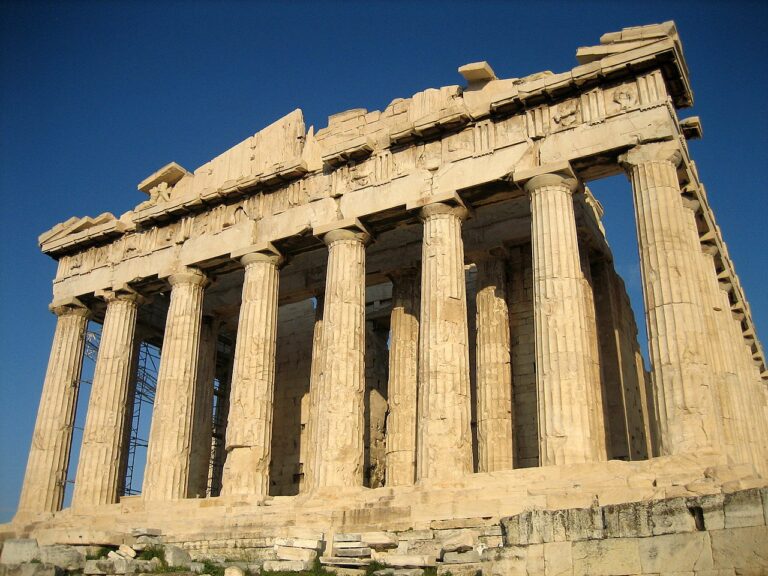
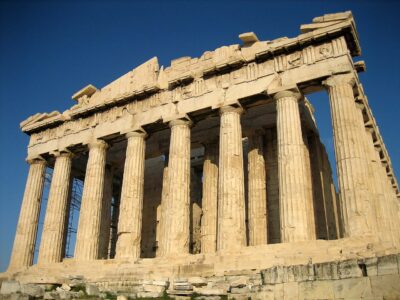
コメント